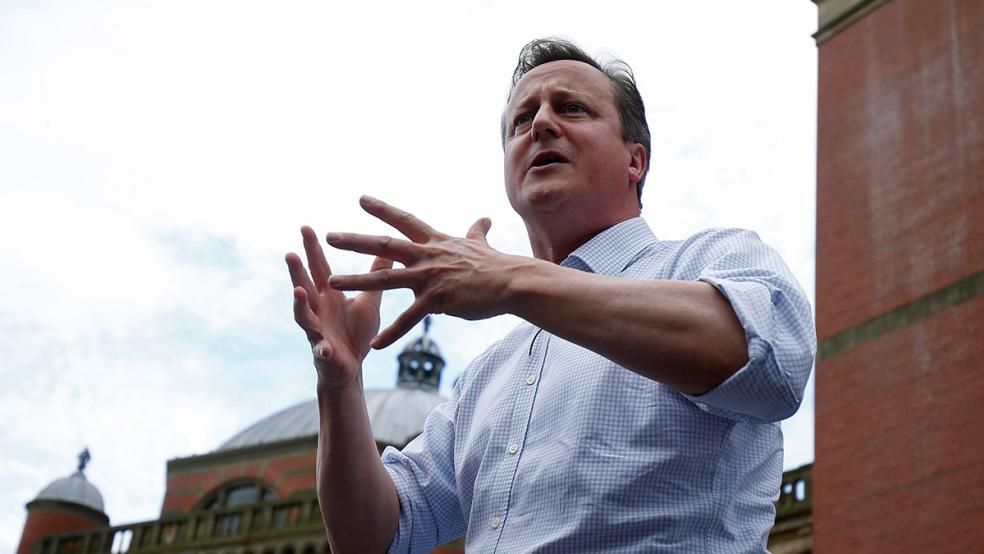First Britain, now Italy, what’s next? The Brexit has triggered the EU’s worst political crisis.
And to make matters worse Britain’s Prime Minister David Camron steps down on Wednesday, having bet his entire political future on the likelihood that a vote for Brexit would lose at the polls. Pollsters and policy experts alike did not take the likelihood of a vote for Brexit seriously. After all, if David Cameron and his advisors believed for a minute that they’d lose at the polls, they would never have initiated a referendum.
Their arrogance rests in a conviction that when countries join the global economy and become more prosperous, they gradually experience a sociopolitical “convergence.” In part, it’s the same narrative that has dictated Western global development and defense policy, and global diplomacy, since the Cold War.
Related: The Upside of Brexit — 9 Ways You Can Save Money
In one of David Cameron’s favorite books, “Why Nations Fail,” political economists Daron Acemoğu and James Robinson explain that there is an iron law of political and economic development, and that countries that attempt to deviate from its grip will fail.
But the iron law did not sway England’s masses. Every conceivable economic argument was made by policy pundits from the entire spectrum of British politics, including both the Tories and Labor, to communicate the risks of exiting. Informed that leaving was the riskier option, why then did the British population exhibit such incredible boldness? Who — the experts or the population — made the bigger miscalculation?
Maybe the voters sensed that building a “European identity” upon shared fiscal and commercial interests is, after all, nothing but “a grand illusion?” That’s the very phrase the late historian Tony Judt used in a prescient essay of the same name written 20 years ago. He described what he called the “reductionist fallacy, the curiously nineteenth century belief shared by classical economists and Marxists alike, that social and political institutions and affinities naturally follow economic ones.”
Related: Trump’s Anti-Trade Populism Is the Opposite of What Made America Great
Led by this fallacy of socioeconomic convergence, Britain’s political elite concluded that a Brexit win was unthinkable. They are unable to grasp why a plurality of British voters consider that the nation state and not the EU offers them the best assurance that the social fabric will not be torn apart by globalization. Far more suited toward civic responsibility and effective participation, a well-governed nation state can promise to ease the disruptive effects of transnational trade, protect the disadvantaged and distribute resources according to some shared standard of equity. Thus Judt cautions that it is wrong to read nationalism and the nation-state as anachronisms; they can be the most modern of institutions.
The current generation of globalists who stand with Cameron and the nation’s cosmopolitan elites can be excused for believing that history moves in one direction. During their lifetime, they have seen the Berlin Wall torn down, China turn capitalist, Marxism lose its grip on Third World revolutionaries, and Sweden and France give up their socialist yearnings.
Yet there are deviations — and very noticeable ones — from the globalization narrative that cultural change must follow economic integration. These examples show up in countries with narrow democratic credentials and limited democratic experience. China, Russia, Saudi Arabia, Turkey, Hungry, the Czech Republic and Poland all actively participate in economic globalization while embracing nationalist visions of the future.
Related: Brexit — Who's Really to Blame for Europe's Mess
Vladimir Putin dramatizes Russia’s history of past military glory, and Recep Tayyip Erdoğan dreams of a Turkish-centric Middle East. Xi Jinping seeks to revive the ancient Silk Road. The Saudis seek to spread Koranic laws to the world’s Muslim populations.
These deviations from a shared cosmopolitan ethos might have been attributable to immature institutions. But this time it is the British, a central pillar and source of global liberalism, defecting from the very narrative the country’s own history has inspired.
Yet it is also wrong to view the Brexit as signifying a desire to move backward toward an idyllic little England for the English only. No country in Europe plays a greater role on the global stage. Britain’s contributions to the defeat of fascism, communism and authoritarianism far exceed those of either France or Germany. No county in Europe has done more in the past 25 years to welcome immigrants. No country in Europe does more to promote open economies, and few countries have benefitted more.
Related: Under Theresa May, the UK Will Still Be Heading Toward Brexit
The narrative that economic growth will replace historic identities with a more cosmopolitan one no longer bears repeating. That narrative cannot chart, solve or analyze the crisis that Europe now faces.
The Brexit will not mean that Britain has withdrawn from globalization. What the Brexit shows us is that change does not move in one direction. That vote brings an end to illusions of global uniformity, not to globalization itself. The future course of globalization is likely to be charted by populations that can be both global and national, and in this regard the Brits, by choosing memory over materialism, may continue to be trendsetters.
— Hilton Root is an affiliated senior scholar at the Mercatus Center, teaches public policy at George Mason University’s Schar School of Policy and Government, and is the author of “Dynamics Among Nations: The Evolution of Legitimacy and Development in Modern States” (The MIT Press).





